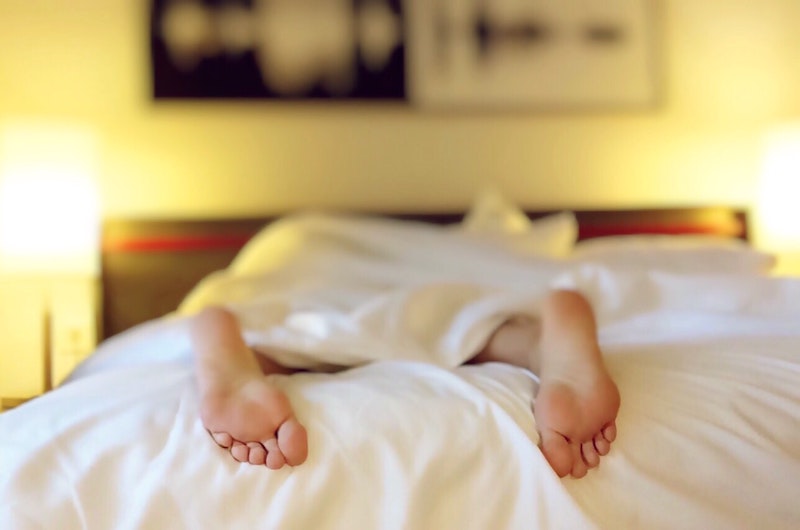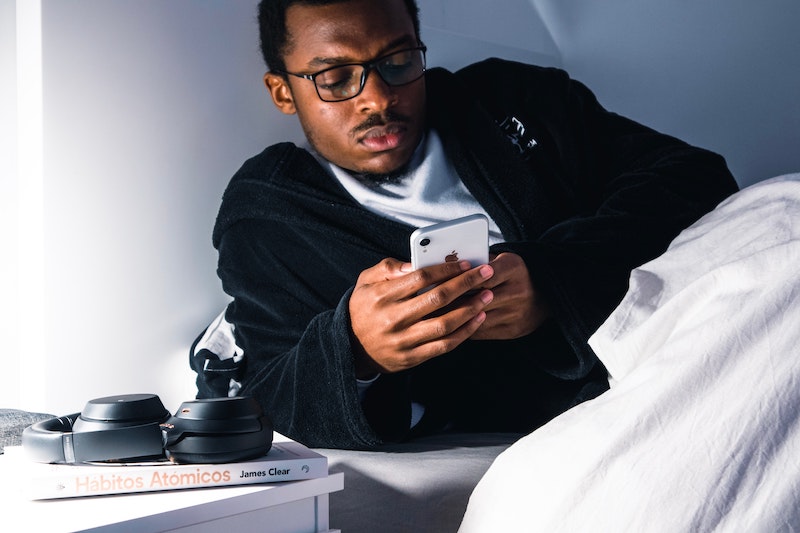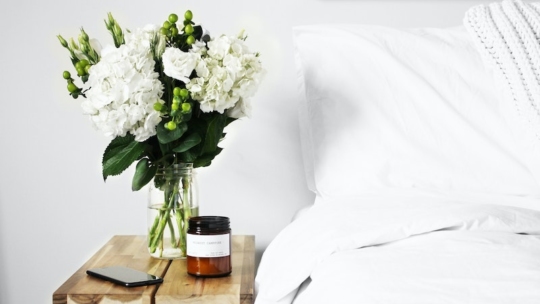Sleep is vital for your body. It’s an important period of time where your body can reset and recover from the day’s adventures.
However, not everyone is blessed with a good night’s sleep and that can often be down to how you get ready for bed.

Winding down at the end of the evening is just as important as the quality of your mattress to the temperature of your bedroom.
Having the right nightly routines in place can make sure that you wake up feeling refreshed from a restful sleep.
The benefits of a better bedtime routine
There are many benefits that you can get from more hours of sleep. Insufficient sleep has an estimated economic impact of over $411B each year in the United States alone.
Why is that you ask?
Well with poor sleep, many individuals find themselves to be less productive and without enough high-quality sleep, it can have a severe knock-on effect on your mental and physical health.
The benefits of healthy sleep are worth knowing so that you can see the advantages of perfecting a better bedtime routine.
Humans are creatures of habit – we love a routine
Routines are a necessity for us humans because we are creatures of habit. Many of us have grown up with a form of structure to our lives particularly when it comes to education as a child to the working hours of a job.
So just like any of the routines that we have in place, it can be handy to incorporate a routine in the hours before bed. A bedtime routine for adults is needed, just as much as it’s needed for children!
It can help to reduce anxious thoughts
Stress and anxiety are two common feelings that humans can have and that can be triggered partially from a lack of sleep. If you suffer from anxiety or insomnia, then having a to-do list of tasks to wind down for bed, can be helpful.
Whilst it might not tackle the mental health problem completely, it can be helped with evening routines in place for bedtime.
Helps you to fall asleep faster
From creative relaxation techniques to staying away from gadgets several minutes before bedtime, a good nighttime routine can help you fall asleep faster. If you’ve ever had trouble falling asleep when in bed at night, then guaranteed to have some sort of structure can help with that.
Getting to sleep quicker will mean you have more sleep. Sleeping 60 to 90 minutes more per night can make you happier and healthier as a result.
Increases the number of hours you sleep
The average person will get around seven hours of sleep per night. That is ideally, what you should be aiming for.
Do you get enough?
Chances are, you’re not or you’ve found that your sleep patterns are all over the place. Perhaps you’re getting up early one morning and then sleeping in late the next.
What you do in the evening before going to bed, can significantly help with increasing the amount of deep sleep at night. A nighttime routine can also help ensure your morning routine is the best it can be too.
Six tips to build a better bedtime routine
So what is the best way to prepare for bed?
These six tips should hopefully help improve the quality of your sleep, whilst creating the perfect state for your body to be in to fall asleep fast.
1. Give yourself ample time to process and unwind
A mistake made when it comes to getting into bed is to get ready for bed too late and not give yourself time to decompress from the day’s events.
It might be worth taking a bath or shower when the evening kicks in so that you can get into some comfortable loungewear.
Research conducted by a professor of psychiatry found that people will establish their attitudes according to their clothing.
For example, wearing your pajamas or loungewear is going to make you feel more relaxed.
Giving yourself more time to process and unwind is going to make it more likely that you’ll have a restful night, rather than a disrupted one.
You may have had a particularly stressful day and that’s not going to be a great mindset for sleep with all those thought racing through your head.
2. Avoid looking at your gadgets an hour before you hit the hay
One of the many things that we often do before bed is to look at our mobile phones. It’s important that you try and avoid looking at any electronic gadgets at least an hour before bed.

Blue light is the culprit for not being able to fall asleep.
Blue wavelengths are the most powerful when it comes to the effect it has on your sleep-wake internal body clock.
It means that you are going to be more alert and awake instead of wanting to be in a sleep mode state.
3. Go to bed at the same time every night
Even though it’s going to make it tough when you go out on a night out or you’re at a dinner party with friends, keeping a routine where you go to bed at the same time can be helpful.
It will mean that your body will eventually get used to becoming tired around that time.
This can be good practice for those who are still feeling wired late into the evening and need to trick their body into feeling sleepier at a certain point in the evening.
It might not work for a week or two as it can take a while to incorporate your body and mind into a routine like this one.
When it’s time for bed, you’re hopefully going to hit the pillow and you’ll feel like you want to fall asleep, rather than forcing yourself.
4. Stay away from alcohol or caffeine
Alcohol before bed can be detrimental to your sleep, especially if you’re drinking excessively. Alcohol is also like caffeine in that it can keep you awake and that’s the opposite of what’s needed when you’re trying to sleep.
Both these liquids will also increase your heart rate, making you more alert.
If you’re going to drink, then have alcohol with dinner as it’s a good way of soaking up the alcohol quickly.
With caffeine, it’s good to have a cut-off point, ideally mid-afternoon. After that, try to avoid drinking anything that contains caffeine.
5. Consider some light exercise
It might not be everyone’s idea of fun when it comes to evening activities but a bit of light exercise can be helpful when it comes to sleep.
One of the benefits of exercise is that it does take some of that leftover energy you have in the evening and it’s surprising just how quickly you can feel lethargic and tired even with just twenty minutes of exercise.
At this point, it’s also worth trying out a professional muscle relaxation technique, not only to avoid that sore feeling in the morning but to help you unwind and de-stress.
6. Read a book
Reading a bedtime book can be helpful to fall asleep. If you’re an avid reader, then have a book on your bedside table for when you’re struggling to sleep, even if you’ve woken up in the middle of the night.
It may also be useful to have a diary or to-do list that you can prep for tomorrow or for the week ahead if you’re not a fan of reading.
If you can’t fall asleep?
What if you can’t fall asleep so easily?
How do you fall into a deep sleep?
Getting a routine in place is one way of succumbing to sleep quicker but your environment can play a part in it too. A few suggestions worth considering to improve your sleep surroundings can be:
- A sleep mask – great for blocking out any light.
- Blackout blinds or curtains – Another alternative to removing any external light.
- White noise or soundscapes – White noise and other calming sounds are said to relax and allow for an easier transition into the land of nod.
It might also be useful to speak to a sleep expert or doctor, who may be able to give you further advice on sleeping better. This is worthwhile because you may find there are underlying medical conditions that are affecting your ability to sleep.
Hopefully, you’ve found this article helpful and the tips mentioned can create some healthy habits when it comes to your sleep cycle.
Helping your internal clock align better with day and night can be a great way to wake up feeling energized, rather than experiencing sleep inertia and having to hit that snooze button several times.

